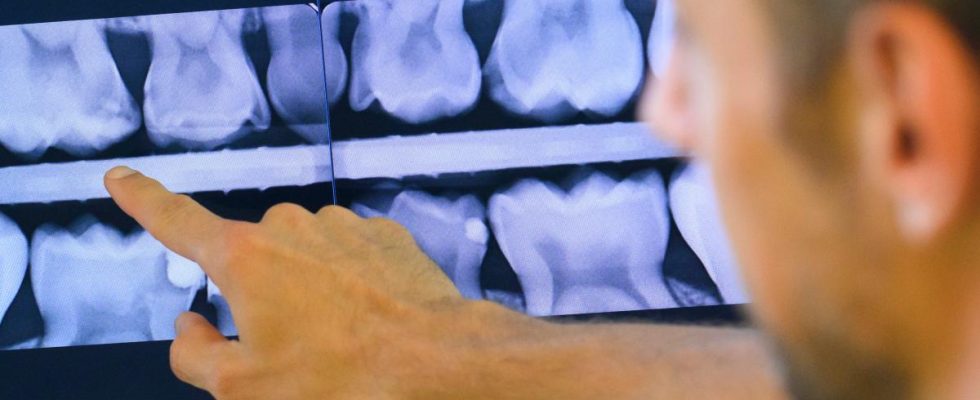Rejected asylum seekers at the dentist – a fact check
“They get their teeth remade and German citizens next door don’t get any appointments.”
In “WELT TALK”, CDU leader Friedrich Merz sharply warned the SPD and Green party leaders Lars Klingbeil and Omid Nouripour to take a more decisive approach in combating the migration crisis. This statement by the CDU party leader is causing a stir online.
CDU leader Friedrich Merz provoked people in WELT Talk with a statement about dentures for rejected asylum seekers. What health care do migrants and refugees receive in Germany – and are dentures included? A fact check.
What did Merz say?
“The receipt of benefits for asylum seekers here in Germany needs to be examined,” said CDU leader Friedrich Merz in the WELT Talk. “We need to talk about the pull factors here in Germany.” But their existence is denied by the Greens. According to Merz, citizens would go crazy “if they see that 300,000 asylum seekers have been rejected, are not allowed to leave the country, and are receiving full benefits.”
He added: “They sit at the doctor and have their teeth changed, and the German citizens next door don’t get any appointments. What you are doing here is a catastrophe for this country.” This statement by the CDU party leader immediately caused a stir on social networks; it was widely shared, quoted and discussed.
Which group did Merz talk about?
According to the Federal Statistical Office, there were 304,308 foreigners who were required to leave the country at the end of 2022, of whom 248,145 were tolerated. Tolerated people are people who are obliged to leave the country but cannot be deported for certain reasons – for example due to a lack of identification documents, a lack of cooperation from the country of origin or an illness. Toleration is always limited.
Can rejected asylum seekers simply have their teeth remade at the doctor?
Asylum seekers and tolerated persons in Germany do not have health insurance for the first 18 months. Benefits are regulated in paragraphs 4 and 6 of the Asylum Seekers Benefits Act (AsylbLG). Paragraph 4 states, for example: “Dentures will only be provided if this cannot be postponed for medical reasons in the individual case.”
After 18 months, asylum seekers and tolerated persons receive a “health card for refugees” and thus access to medical care. The benefits are similar to those of those insured by statutory health insurance. The social welfare office bears the costs; there is no actual membership in a health insurance company.
Migrants with a residence permit will later also become members of statutory health insurance, as insurance is compulsory in Germany. You would also be entitled to the benefits of the statutory health insurance company.
What does the Federal Dental Association say?
A fact sheet on “Dental treatment of asylum seekers” states: “To treat acute illnesses and pain conditions, the necessary medical and dental treatment is required, including the supply of medicines and bandages as well as other measures necessary for the recovery, improvement or alleviation of illnesses or the consequences of illnesses to provide benefits.” Dentures will only be provided if this cannot be postponed for medical reasons in individual cases.
Each dentist must decide based on their individual situation which examinations and treatments are covered by the Asylum Seekers Benefits Act. The practitioner could get into an ethical conflict if possible tooth-preserving measures are not financed. “Under certain circumstances, only acute pain warrants treatment,” says the brochure from the Federal Dental Association.
What is the conclusion?
The fact is: In the first 18 months, migrants in Germany only have access to limited medical care. In most cases, after 18 months, you have access to the health system, similar to what people with statutory health insurance have. And this is also reflected in the supply system. There are increasing calls for help from underserved communities that there is a shortage of school and daycare places, but appointments with doctors are also becoming increasingly difficult to obtain.



